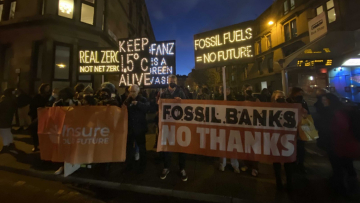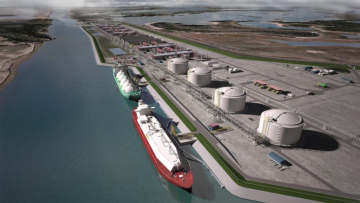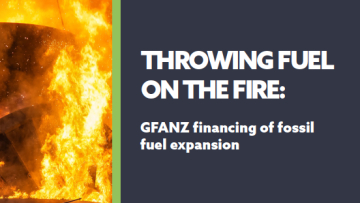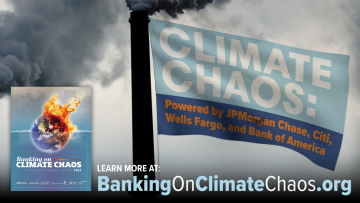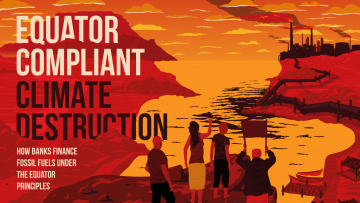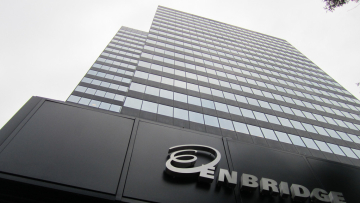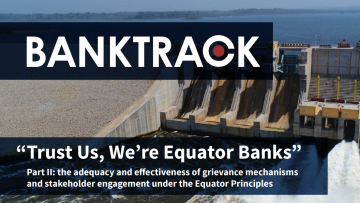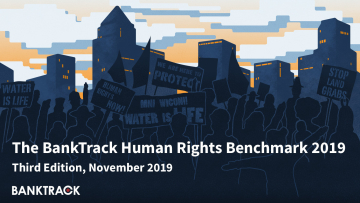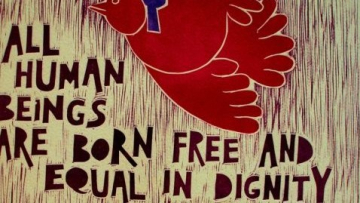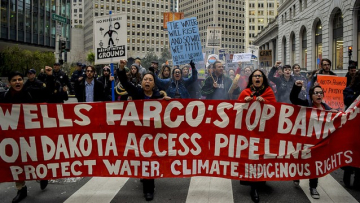
Active
This profile is actively maintained
Active
This profile is actively maintained| Website | https://www.cibc.com/en/ |
| Headquarters |
Commerce Court
M5L 1A2 Toronto
Canada
|
| CEO/chair |
Harry Culham CEO & President |
| Supervisor | |
| Ownership |
listed on NYSE & Toronto Stock Exchange
CIBC's shareholder structure can be accessed here. |
The Canadian Imperial Bank of Commerce (CIBC) was formed in 1961 through the merger of two chartered banks: Canadian Bank of Commerce and the Imperial bank of Canada. It is now one of the big five banks in Canada. CIBC has three main business units: Retail and Business Banking, Wealth Management and Capital Markets.
CIBC's most important sustainability commitments can be found at the website sections listed below.
Canadian Imperial Bank Of Commerce (CIBC) is linked to a number of companies and projects that BankTrack considers controversial (so called Dodgy Deals), e.g. as a current or past financier or through an expression of interest. The profiles below provide more details on the nature of Canadian Imperial Bank Of Commerce (CIBC)'s link to these deals.
CIBC operates a Whistleblower Hotline, which is restricted to employees, clients and suppliers. Individuals and communities that may be adversely affected by the bank's finance are not currently able to raise complaints directly with the bank.
Affected stakeholders may however raise complaints via the OECD National Contact Points (see OECD Watch guidance).
CIBC is an Equator Principles signatory. While the Equator Principles have no official grievance mechanism, complaints relating to this bank's financing of Equator Principles projects can be filed through our own website www.equator-complaints.org.
This page evaluates Canadian Imperial Bank of Commerce (CIBC)'s responses to instances of alleged human rights violations linked to its finance, raised by civil society organisations. It is not intended to be exhaustive, but covers selected impacts raised by BankTrack and other civil society partners since 2016. For the full scoring methodology, see here. For more information about BankTrack's evaluation of bank responses to human rights impacts, see the 2021 report "Actions speak louder: assessing bank responses to human rights violations".
Banks and Climate
The 2025 Banking on Climate Chaos report showed that CIBC provided $80.0 bn in financing to the fossil fuel industry between 2021 and 2024. In 2024 only, CIBC provided $22.3 bn, including $9.2 bn for oil, gas and coal companies expanding fossil fuels. CIBC was one of the 15 largest fossil fuel financiers in 2024. Find further details on CIBC's fossil fuel portfolio and how it compares to other large banks globally on the Banking on Climate Chaos website below.
Partner organisation Reclaim Finance tracks the coal, oil and gas policies of financial institutions, including banks, in their Coal Policy Tool (CPT) and the Oil and Gas Policy Tracker (OGPT). BankTrack works closely with Reclaim Finance and endorses their policy assessments. Find further details on their assessment of CIBC’s fossil fuel policy below.
Banks and Human Rights
BankTrack assessed Canadian Imperial Bank in its 2024 Global Human Rights Benchmark, where it achieved 5 points out of 15 and was ranked as a “follower”.
The bank scored 0 out of 3 points on the new “specific rights indicators”, which assess how banks address human rights defenders, Indigenous Peoples’ right to Free, Prior and Informed Consent and environmental rights in their policies and practices.
In addition, Canadian Imperial Bank scored 0 out of 3 on how it responds to alleged human rights violations linked to its finance, which were raised by civil society organisations. More information is detailed in the “Accountability” section of this profile.
The table below shows BankTrack's assessment of how Canadian Imperial Bank has implemented the UN Guiding Principles on Business and Human Rights. Please click on 'expand all details' and 'explanation' for further information on the methodology.
Our policy assessments are always a work in progress. We very much welcome any feedback, especially from banks included in the assessments. Please get in touch at humanrights@banktrack.org.
Global Human Rights Benchmark 2022
Global Human Rights Benchmark 2024
Tracking the Net Zero Banking Alliance
Canadian Imperial Bank of Commerce (CIBC) left the Net Zero Banking Alliance (NZBA) on 17 January 2025. Before that, as a NZBA member it had committed to reduce its financed emissions to net zero by 2050; within 18 months of joining the alliance set interim targets for 2030 (or sooner) for high emission priority sectors, and within 36 months set further sector targets; set new intermediary targets every 5 years from 2030 onwards; annually publish data on emissions and progress against a transition strategy including climate-related sectoral policies; and take a robust approach to the role of offsets in transition plans. BankTrack will keep track of Goldman Sachs and other ex-NZBA member banks' climate action in a specific section of the NZBA tracker.
Banks and Steel
Partner organisation Reclaim Finance’s 2023 report on metallurgical coal financing showed that CIBC provided US$ 3.4 billion in loans and underwriting to developers of new metallurgical coal between 2016 and 2022. Find further details on CIBC’s metallurgical coal financing and and how it compares to other large banks globally in the report.
Reclaim Finance tracks the metallurgical coal policies of financial institutions, including banks, in their Coal Policy Tool. BankTrack works closely with Reclaim Finance and endorses their policy assessments. Find further details on their assessment of CIBC’s metallurgical coal policy below.






